Q&A with Julian Fellowes
As the writer do you ever reflect on The Young Victoria and feel compromised in your vision compared to the finished film?
"Well there's always stuff that's taken out, but there's really only one scene which I think they should have kept in which they haven't. And if the writer's objection is only one scene then things are in pretty good shape. I thought that they were quite brave in this in that they allowed the politics to stay in the film. I can think of plenty of producers who would have panicked about that, cut all of it and just had a love story with Victoria and Albert wandering around looking into each other's eyes."
Does the fact that your director, Jean-Marc Vallée, is Canadian mean he relied upon you more than a British director might for the historical and particularly the English nuance?
"I like Jean-Marc very much, I think he's very talented and we got on very well, and obviously you get listened to more if that is the case. But I think it's a slightly different issue though, and that is that the English are very thin skinned about this stuff. It is very difficult to tell an English director that he has done it wrong because however you wrap it up what you're saying is 'I know and you don't'. With a foreign director, if you say 'this is not how it would be done,' there's no loss of face there. It's just an anthropological detail. I remember there was one mistake made in this film, and I came and saw the rushes and I said 'this is completely wrong,' and I rushed off and spoke to Jean-Marc. He was annoyed but he wasn't in the least defensive, he made sure they got a better advisor. We had this fantastic guy, Alistair Bruce, who wasn't taken on full time until after that. He's written books about the history of the coronation, the history of this and the history of that. So he really did know his onions and I think the film owes a great debt to him because he was working with Jean-Marc from then on."
How faithful do you have to be to actual historical events in a film such as this, do you think?
"I think you can alter events as long as they don't alter the truth. For instance in this film Prince Albert did not come to the coronation, that whole period of their relationship was conducted by letter but there's a limit to how many scenes you can have with people opening letters. So we have this thing where he comes over to stay, and goes to the coronation, like a lot of other princes did. And the dialogue in those scenes is based upon their letters, so I don't feel that makes it an untruth. But it's different when you actually change events. I remember once making a version of The Scarlet Pimpernel where in the end they rescued the Dauphin. I said that would have changed the history of 19th century France if that had happened. They said 'nobody will care about that,' but they do."
And then there's the assassination attempt in the film, how do you deal with criticism of that?
"The interesting truth of that moment is Albert's bravery and anything that demonstrates that is, I think, in accordance with the fundamental truth. The difficulty in a film is if you have a gun that misses or doesn't go off you are risking (a) making it funny and (b) you're risking the audience losing how brave it was. Whereas if he's hit they suddenly think 'my God, this guy got in the way of the bullet!'. And he did get in the way of the bullet in reality, he just wasn't hit by it. That's why I think you have to sometimes put things into film language to make your point."
So if you were hired for a future adaptation would you fight your corner to retain the historical veracity?
"I would, but in the end writers are guns for hire. If that's not what you want then this isn't the right job for you. So finally when they say 'no, cut the crucifixion it won't play,' there is a moment when you have to decide that you're either going to walk off the job or make the change. But there is a kind of middle bit where, if you have a producer who is listening to you - and that of course is he first job of a screenwriter, to try and build the relationship with at least one of the producers - then there's a chance that you will win. You'll never win everything, but you may win the ones that matter most to you."
On this film your producers include Graham King and Martin Scorsese, who presumably came at it with a point of view.
"This was a film where you had an unusual situation where Graham King and Martin Scorsese didn't want to make a film that wasn't true. So all the earlier suggestions when anyone's come near this subject of making the Queen and Lord Melbourne lovers, they weren't interested in. They weren't interested in putting Queen Victoria and Prince Albert into bed before they were married. All that stuff would have come out of some studio note, so I was very protected in that sense. That's when it's difficult, when you're working for people making a film that is based on a true event but you suddenly realise that that's not the film they want to make. I think you try to ascertain that in the very early stages, before you get too stuck in really."
Is it tempting to ponder what Victoria might have made of our view of her today?
"I think she would have been almost saddened that she is seen as a dour and disapproving figure, which she certainly was not. In her own private life her family thought of her as having a good sense of humour but that's completely been lost, so I think a representation of herself as a girl, humming I Puritani - which is true - is one she would have approved of, really. And the mistakes she makes in the film she made in life, we haven't attributed any misjudgement that wasn't rooted in fact."
But therein lies your responsibility, because our view of the Queen comes from portrayals in films by the likes of Anna Neagle, Judi Dench and now Emily Blunt, doesn't it?
"I think what is very skilful about Emily's performance, which I think is very, very good is that you can sort of see Judi Dench in her. It's not impossible to understand how this rather strong willed girl became a stubborn old monarch. I feel they are sort of playing two ends of the same woman, so I was rather thrilled with that."
But the defining moment was losing her beloved Albert so early in life, wasn't it?
"What I hope the film helps people understand is that she grew up alone, apart from the rather creepy Baroness Lehzen who eventually had to be sent away. She couldn't trust her mother and her father was dead. She was never allowed to see her uncle and aunt who she did like. She quarrelled with her half brother, she didn't quarrel with her half sister - Princess Feodora - but she went to live at the other end of Germany when she was six or five or something. We didn't get into them in the film because you've only got so much time but nevertheless, she lives - as the Prince says to her - all alone in her head. And then into this comes a man who's as handsome as Lochinvar, who loves her and is completely trustworthy. After the assassination attempt she sees that she's got someone who puts her interests above everything and will never betray her. And all of that is taken from her at 41, when she's still a young woman. In her brain she's in the middle of a radiantly happy marriage, and suddenly 'whack!'. The shock and the loss given all that must have been simply unquantifiable."
As a film dramatist rather than a historian you're on a hiding to nothing when you hypothesise?
"Every job has its disadvantages. I had a journalist ring me up saying 'did the fact that you could read Dress Circle in the opera ruin the film?'. I said that since I'd seen it four times and never noticed it I can't honestly say that I think it did. That's the problem with being a film. In one way I can't say it's not irritating because of course it is, but in another way that just goes with the territory. Historians always feels irritated because as far as they're concerned all movie people are lying in a pat of butter while they're struggling away to get by on their meagre stipend. But I must say Andrew Roberts wrote a leader in the Telegraph saying thank God for a historic film that's actually true to history. I was rather complimented by that."
Yet the fact remains that the most remarkable moments in films are often taken from things that really happened.
"Exactly. Several people have asked me if I invented King William's speech at the banquet because, they said, nothing like that would ever happen. Not only did I not invent it but it's almost all the real speech. Truth is often stranger than fiction."
"Well there's always stuff that's taken out, but there's really only one scene which I think they should have kept in which they haven't. And if the writer's objection is only one scene then things are in pretty good shape. I thought that they were quite brave in this in that they allowed the politics to stay in the film. I can think of plenty of producers who would have panicked about that, cut all of it and just had a love story with Victoria and Albert wandering around looking into each other's eyes."
Does the fact that your director, Jean-Marc Vallée, is Canadian mean he relied upon you more than a British director might for the historical and particularly the English nuance?
"I like Jean-Marc very much, I think he's very talented and we got on very well, and obviously you get listened to more if that is the case. But I think it's a slightly different issue though, and that is that the English are very thin skinned about this stuff. It is very difficult to tell an English director that he has done it wrong because however you wrap it up what you're saying is 'I know and you don't'. With a foreign director, if you say 'this is not how it would be done,' there's no loss of face there. It's just an anthropological detail. I remember there was one mistake made in this film, and I came and saw the rushes and I said 'this is completely wrong,' and I rushed off and spoke to Jean-Marc. He was annoyed but he wasn't in the least defensive, he made sure they got a better advisor. We had this fantastic guy, Alistair Bruce, who wasn't taken on full time until after that. He's written books about the history of the coronation, the history of this and the history of that. So he really did know his onions and I think the film owes a great debt to him because he was working with Jean-Marc from then on."
How faithful do you have to be to actual historical events in a film such as this, do you think?
"I think you can alter events as long as they don't alter the truth. For instance in this film Prince Albert did not come to the coronation, that whole period of their relationship was conducted by letter but there's a limit to how many scenes you can have with people opening letters. So we have this thing where he comes over to stay, and goes to the coronation, like a lot of other princes did. And the dialogue in those scenes is based upon their letters, so I don't feel that makes it an untruth. But it's different when you actually change events. I remember once making a version of The Scarlet Pimpernel where in the end they rescued the Dauphin. I said that would have changed the history of 19th century France if that had happened. They said 'nobody will care about that,' but they do."
And then there's the assassination attempt in the film, how do you deal with criticism of that?
"The interesting truth of that moment is Albert's bravery and anything that demonstrates that is, I think, in accordance with the fundamental truth. The difficulty in a film is if you have a gun that misses or doesn't go off you are risking (a) making it funny and (b) you're risking the audience losing how brave it was. Whereas if he's hit they suddenly think 'my God, this guy got in the way of the bullet!'. And he did get in the way of the bullet in reality, he just wasn't hit by it. That's why I think you have to sometimes put things into film language to make your point."
So if you were hired for a future adaptation would you fight your corner to retain the historical veracity?
"I would, but in the end writers are guns for hire. If that's not what you want then this isn't the right job for you. So finally when they say 'no, cut the crucifixion it won't play,' there is a moment when you have to decide that you're either going to walk off the job or make the change. But there is a kind of middle bit where, if you have a producer who is listening to you - and that of course is he first job of a screenwriter, to try and build the relationship with at least one of the producers - then there's a chance that you will win. You'll never win everything, but you may win the ones that matter most to you."
On this film your producers include Graham King and Martin Scorsese, who presumably came at it with a point of view.
"This was a film where you had an unusual situation where Graham King and Martin Scorsese didn't want to make a film that wasn't true. So all the earlier suggestions when anyone's come near this subject of making the Queen and Lord Melbourne lovers, they weren't interested in. They weren't interested in putting Queen Victoria and Prince Albert into bed before they were married. All that stuff would have come out of some studio note, so I was very protected in that sense. That's when it's difficult, when you're working for people making a film that is based on a true event but you suddenly realise that that's not the film they want to make. I think you try to ascertain that in the very early stages, before you get too stuck in really."
Is it tempting to ponder what Victoria might have made of our view of her today?
"I think she would have been almost saddened that she is seen as a dour and disapproving figure, which she certainly was not. In her own private life her family thought of her as having a good sense of humour but that's completely been lost, so I think a representation of herself as a girl, humming I Puritani - which is true - is one she would have approved of, really. And the mistakes she makes in the film she made in life, we haven't attributed any misjudgement that wasn't rooted in fact."
But therein lies your responsibility, because our view of the Queen comes from portrayals in films by the likes of Anna Neagle, Judi Dench and now Emily Blunt, doesn't it?
"I think what is very skilful about Emily's performance, which I think is very, very good is that you can sort of see Judi Dench in her. It's not impossible to understand how this rather strong willed girl became a stubborn old monarch. I feel they are sort of playing two ends of the same woman, so I was rather thrilled with that."
But the defining moment was losing her beloved Albert so early in life, wasn't it?
"What I hope the film helps people understand is that she grew up alone, apart from the rather creepy Baroness Lehzen who eventually had to be sent away. She couldn't trust her mother and her father was dead. She was never allowed to see her uncle and aunt who she did like. She quarrelled with her half brother, she didn't quarrel with her half sister - Princess Feodora - but she went to live at the other end of Germany when she was six or five or something. We didn't get into them in the film because you've only got so much time but nevertheless, she lives - as the Prince says to her - all alone in her head. And then into this comes a man who's as handsome as Lochinvar, who loves her and is completely trustworthy. After the assassination attempt she sees that she's got someone who puts her interests above everything and will never betray her. And all of that is taken from her at 41, when she's still a young woman. In her brain she's in the middle of a radiantly happy marriage, and suddenly 'whack!'. The shock and the loss given all that must have been simply unquantifiable."
As a film dramatist rather than a historian you're on a hiding to nothing when you hypothesise?
"Every job has its disadvantages. I had a journalist ring me up saying 'did the fact that you could read Dress Circle in the opera ruin the film?'. I said that since I'd seen it four times and never noticed it I can't honestly say that I think it did. That's the problem with being a film. In one way I can't say it's not irritating because of course it is, but in another way that just goes with the territory. Historians always feels irritated because as far as they're concerned all movie people are lying in a pat of butter while they're struggling away to get by on their meagre stipend. But I must say Andrew Roberts wrote a leader in the Telegraph saying thank God for a historic film that's actually true to history. I was rather complimented by that."
Yet the fact remains that the most remarkable moments in films are often taken from things that really happened.
"Exactly. Several people have asked me if I invented King William's speech at the banquet because, they said, nothing like that would ever happen. Not only did I not invent it but it's almost all the real speech. Truth is often stranger than fiction."
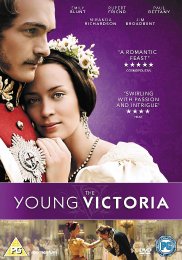
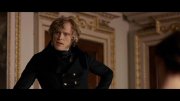
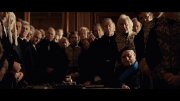

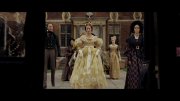

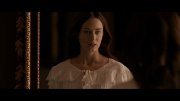

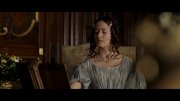
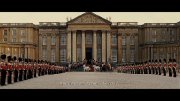
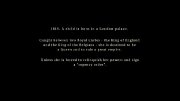
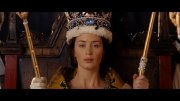
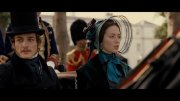
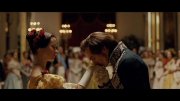
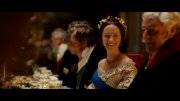
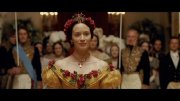
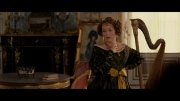
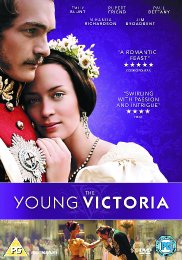

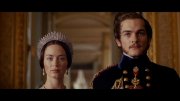

































Your Opinions and Comments
Be the first to post a comment!